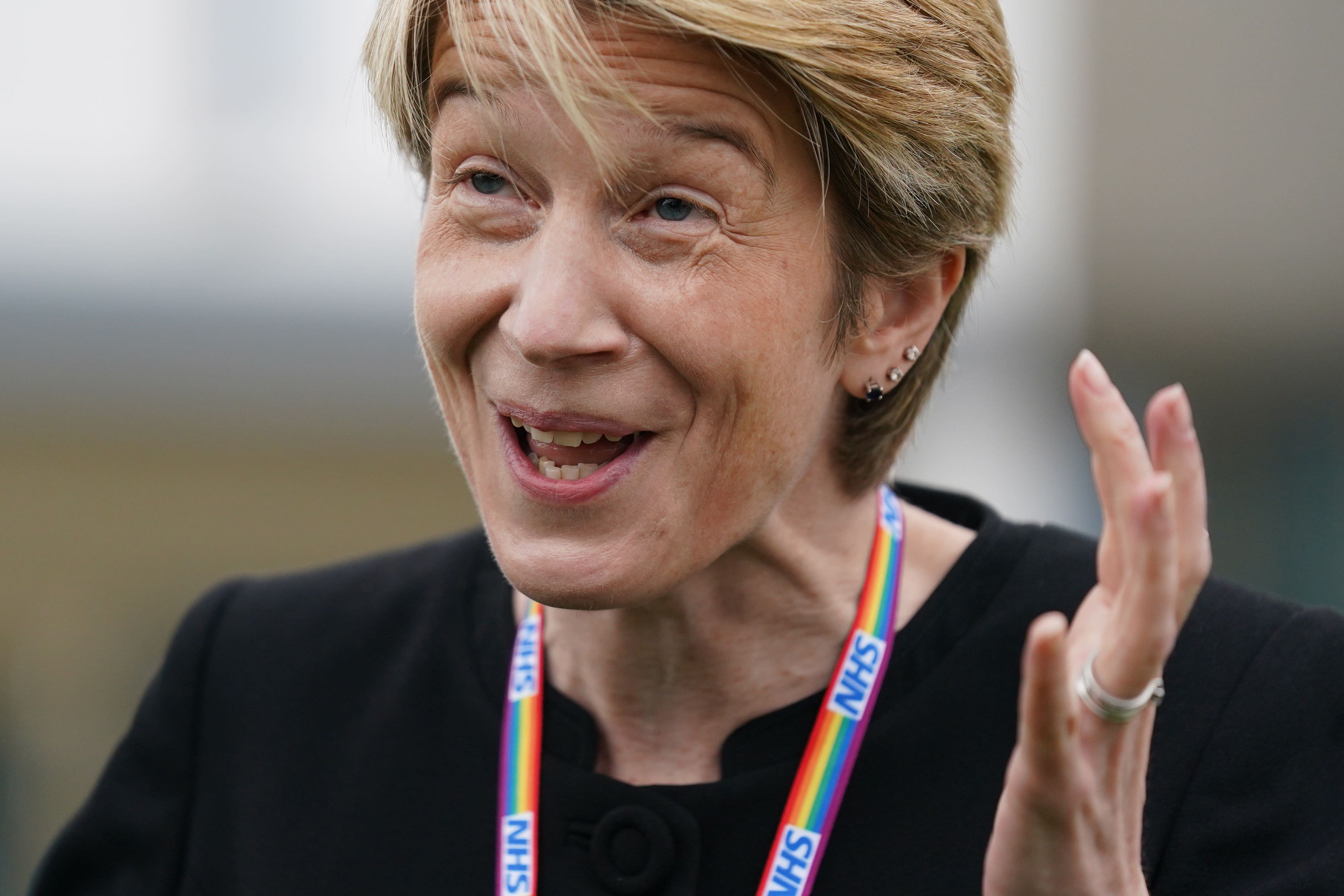Ongoing strikes are making workloads ‘more challenging’, says NHS England boss
February 6 is likely to see the biggest strike action the health service has ever experienced.

Your support helps us to tell the story
From reproductive rights to climate change to Big Tech, The Independent is on the ground when the story is developing. Whether it's investigating the financials of Elon Musk's pro-Trump PAC or producing our latest documentary, 'The A Word', which shines a light on the American women fighting for reproductive rights, we know how important it is to parse out the facts from the messaging.
At such a critical moment in US history, we need reporters on the ground. Your donation allows us to keep sending journalists to speak to both sides of the story.
The Independent is trusted by Americans across the entire political spectrum. And unlike many other quality news outlets, we choose not to lock Americans out of our reporting and analysis with paywalls. We believe quality journalism should be available to everyone, paid for by those who can afford it.
Your support makes all the difference.Repeated strikes by health staff are making workloads “more challenging”, the chief executive of NHS England has admitted.
The NHS is bracing for its biggest industrial action ever next month, with thousands of nurses across England going on strike on Wednesday and Thursday this week and around 1,000 ambulance workers in Wales also walking out on Thursday.
There are expectations that thousands of operations and appointments will need to be cancelled over the next few months, but NHS England boss Amanda Pritchard expressed hope that the industrial action could be resolved.
“As the strike action is extended over long periods of time, and as those dates start coming closer together, it does get more challenging, there is absolutely no doubt,” she told BBC Radio 4’s Today programme.
“It is clearly having an impact. I think that’s obvious.”
She added: “My sense is that everybody is looking to try and reach a resolution.”
Health leaders have warned that emergency services are facing “alarming levels of stress” and that more hospital beds were “desperately needed”.
Delayed discharge is one of a number of pressures the NHS is facing this winter, along with bed shortages, a fresh wave of Covid-19 infections, the worst flu season for a decade and ongoing strikes.
February 6 is likely to see the biggest strike action the NHS has ever experienced after the Unite union announced fresh ambulance worker walkouts.
Thousands of nurses from the Royal College of Nursing (RCN) were already scheduled to strike on February 6 and 7, and the GMB union announced earlier this week that its ambulance workers would join them on February 6.
On Friday morning, Unite said workers from five ambulance trusts in England and Wales would also join the strike on February 6.
Downing Street insisted that the Government was still open to facilitating talks with trade unions, while admitting that the planned walkout would cause further “disruption” for patients.
Speaking to broadcasters during a hospital visit earlier this week, Health Secretary Steve Barclay appeared to rule out a 10% pay rise for nurses, insisting it was “not affordable”.
“Well 10% is not affordable, it would be an extra £3.6 billion a year and obviously that would take money away from patient services, essential services that we need to invest in given the backlogs from the pandemic,” he said.
“Now, within Government we take a whole Government approach – of course I have discussions with the Treasury, as do other Secretaries of State, and these things need to be balanced not just with the needs of teachers, with the Education Secretary, or train drivers with the Transport Secretary, but also what’s affordable for your viewers in terms of their own cost-of-living pressures.”
He insisted he was working “constructively” with unions but said he was “disappointed” in the strikes.